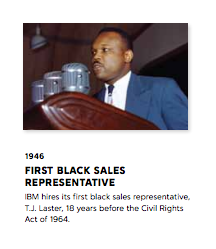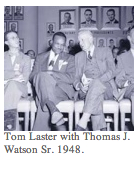Know Your Your Company’s Expense Policies! Know Your Company’s Expense Policies!
I run this post once a year because it is important. I always want to stress the importance of knowing your company’s expense policies and also stress avoiding even the most correctable errors. Proper personal expenses management is that part of your sales activities that merely helps you maintain your credibility and gives managers confidence that you will do the right thing when no one is looking.
Following the program correctly won’t necessarily get you a lot of additional points, but it will secure you in the mind as someone who can be trusted. Be smart and in control of the process. Knowledge counts here. Read this and remember, ignorance of the policy is no excuse. Read on…
__________________________________
Business entertainment, especially customer dining, is an event that we may take for granted. It is important for most businesses but always suspect as an expense that can be smartly trimmed in terms of cost, and even frequency.
Business entertainment is a tool that when used wisely can aid in relationship building. When done correctly, this can result in far greater returns than the business meal or entertainment actually amounts to.
If you desire to claim a business lunch, dinner, or other entertainment, these expenses should be directly related to the business purpose. The meal or refreshments should be related to the legitimate image business activity, and should be able to stand the test of proof. Technically, only then would you and your employer be allowed to treat these expenditures as expenses, and not as income when the burden of proof comes along.
Getting Technical
The IRS sets some basic rules that individuals and business follow. A quick review of the rules that the IRS as set forth will show a couple of rather simple tests:
Directly Related Test
To qualify for reimbursement under the directly-related test for entertainment, including meals, you must be able to prove the following:
- The main purpose of the combined business and entertainment was the active conduct of business.
- You did engage in business with the individual during the entertainment period
- You had more than a general expectation of getting income of some other business benefit at some future time
The Associated Test
If the expenses meet the directly-related test, they may qualify under the associated test.
This test states that entertainment is:
- Associated with the active conduct of your trade or business and,
- Directly before or after a substantial business discussion.
This test includes the Substantial Business Discussion rule that is a requirement of deductibility for your employer.
According to Publication 463 – Travel, Entertainment, Gift, and Car Expenses for 2010 from the Internal Revenue Service, “A business discussion will not be considered substantial unless you can show that you actively engaged in the discussion, meeting, negotiation, or other business transaction to get income or some other specific benefit.”
Keeping Credibility
Accuracy and truthfulness are at the heart of professional credibility for the Black sales professional. Even greater is the fact that only one instance of inaccuracy or untruth can do away with years of work establishing the credibility. There is more on credibility in the last Black Sales Journal 3/31, Credibility – A Goal of the Black Sales Professional.
I am going to cite some basics, and these are truly basics for expense report integrity. Here are some suggestions for keeping your standing and credibility intact regarding expenses:
- Be timely - Submit your expenses no later than 1 week after they are due.
- Be organized - Keep information in a system that allows you to produce your receipts and expense forms as is necessary.
- Insure accuracy - If you do your expenses regularly, you will be under no time pressure. The accuracy in your reports builds confidence.
- Be honest - Above all, there is truly nothing worthwhile to gain by having your employer pay for a lunch for you and your friend. It is frankly not worth it! Only claim what you can prove using receipts.
- Be Knowledgeable – Know intimately your organization’s expense policy.
Some Business Entertainment Specifics
We all have a particular responsibility when it comes to business entertainment, and especially meals. We should make sure that the meal or event matches the business purpose. There should be no instance where entertaining at the most expensive restaurant in town happens for a casual business discussion. Remember, being modest and practical is prudent and a sign of good judgment.
Here are some basics entertainment do’s and don’ts that you may benefit from:
- Take Ownership – Forget the roulette that takes place where you the participants of a meal wait for the bill to come, then “wait” each other out to see who will pick up the check. Unless the customer has advised that they are picking up the meal, they are probably not going to do it. “Own” the event and then the rest of these strategies will be possible.
- Wine – If you are the host, only you should order the wine. You may not realize why if you have never been burned, but the ordering of wine is an extremely high expense at an upscale meal. If you are unsure you can accept someone’s counsel, yet your job is to order, and replenish the wine. Feel comfortable stating to the server, or wine steward that you are responsible for the meal, and you will be responsible for the wine.
- Cordials and Liqueurs – If you open up to your guest having these, you could be in for a surprise. Once you open that gate, you are hard pressed to control the cost of any one of them. An aged port could definitely be in range, yet some of these items could be the price of a small pony.
- Order First – It may seem like bad manners, yet the host ordering first begins to set the tone. When you order a fairly simple strip or filet, you are sending a message that the ‘market-priced’ lobster, which then attaches itself to a filet to make surf and turf, is probably above the price point. Now, they may still do it, but the majority of people get the hint.
- Know When to ‘Cut it Off’ – This is always uncomfortable, yet practical. After the meal, when the laughter and libation goes on, know when to say to the server that you need the check. That does cut it off…at least for you. If someone else wants to pick up the tab, it can start there. This is responsible, and practical. If it seems like it is wrong, think about the bill you are going to submit, and how management is going to react to it.
- Tip Correctly – If you tip correctly you will always find those who serve you eager to have your table. Great service deserves 20% or more. Good service deserves 15-20%. I have had some mediocre service at times, yet did believe that 15% was warranted, because of the size of our group. I cannot ever believe that a tip should be stiffed unless the server was rude, insensitive, and downright awful. If that were the case, I would be having a conversation with the manager as well. If you are unwilling to talk to a manager, then stiffing a tip is more retribution than anything else.
- Treat Wait Staff Properly – When you are entertaining, much can be ascertained about your view on your staff and others by the way you treat the wait staff. They are not perfect, and you are not either. I have seen customers make a decision to avoid a formal business relationship with a vendor when that vendor launches aggressively into a server for forgetting something small. That is about rudeness, and even sometimes about power.
Use Good Sense
It is all about using good sense. When you do it, the most common mistakes are avoided. Don’t feel peer pressure, or the pressure that makes people do those things that are regrettable.
Build a relationship with your customers, not a game of one-up. Be modest when they treat as well. You will build a relationship with your consistency.
Your comments are welcome.
 April 15, 2013
|
Posted by Admin9!
April 15, 2013
|
Posted by Admin9!

 Categories:
Categories:  Tags:
Tags: 


Your Comments